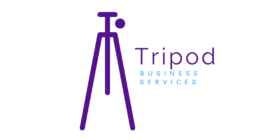Do you remember the teacher on Charlie Brown? She always sounded like “Wah wah wah. Wah wah wah wah.” Do you sound like that to your audience? If they can’t understand what you are saying, they aren’t going to listen for long.
Language can be either a barrier or a bridge, depending on how you use it. Use big words and complicated phrases and you’ll build a wall between you and your audience. Use their words and phrases.
When you do, you’ll build a bridge across which you can transport your audience from their world, full of scary monsters they don’t know how to fight, into your world full of knights on white horses.
When you are blogging for business, you want your audience to trust you. I say it a lot, but it’s true, people buy from people they know, like, and trust. You can’t build trust if your audience doesn’t understand you. I’m going to share 4 keys to speaking your audience’s language.
1. Do your research!
How do you learn a language? You study it, learn the vocab and practice with native speakers.
The same is true of your Audience Language!
Use Facebook groups and talk to your existing clients and followers. Pay attention to how they express their pain points. Use their words to express your knowledge. If you have a comments section on your blog, regularly review it to see how well you are communicating your message.
2. Use their terminology
Remember who your audience is. Are they your peers in the industry or are they ordinary people searching for a solution?
In the B2B world, you want to use industry language to show that you have experience in your field that you want to share with your audience. You want to use that language to establish your authority.
However, if you are speaking business to consumer, you need to use the language they use. When you use their words and phrases not only will they understand better, but they’ll feel like you really get them.
“You’ve read my mind, you get me” will translate to “take my money” faster than “I don’t understand what you’re saying so you must be an expert.”
(Another bonus: it helps your SEO. If your blog or website uses the same language your audience is typing into Google, your site will appear higher in their results.)
3. Limit Technical Terminology
I know sometimes technobabble is unavoidable. When you absolutely need to use a technical term, be sure to explain it. Your audience is smart, and they came to you to learn, so educate them.
However, whenever you can, use words and phrases familiar to them and to explain technical terms. Most things can be explained without using 10-dollar words.
If you use a lot of business specific acronyms, be sure to define the acronym the first time you use it in each blog. After the first time, you can use the acronym throughout without defining it again.
4. Overcome Yourself
This is perhaps the hardest thing to do. What if your audience’s language feels “icky” to you? When you have a passion for your subject, there is going to be language that just bugs you because you know a much better phrase to use.
But your audience doesn’t know that yet.
For example, you may prefer the term “age-appropriate” over the word “normal” but that tired mom you are trying to reach isn’t searching for “age-appropriate…” they’re searching “normal…?”
So, what do you do? Just grin and bear it and use phrasing you hate and don’t agree with?
Not exactly. View it as an opportunity to educate your audience. Acknowledge the phrasing but explain why you don’t like it. Help them understand why a different expression is better. This is an opportunity to establish thought leadership. Why should your audience follow your example? Because you know what you are talking about.
You pour your heart and soul into your business. When your audience feels like you are speaking their language, they will trust you. And trust is the foundation of any relationship.
You don’t have time to create content that doesn’t move you towards your goals, so keep it simple.
If you aren’t communicating clearly with your audience, they won’t want to have a relationship with you. If you don’t build a relationship, they will never trust you. And if they don’t trust you, they will not do business with you.
The best way to connect with your audience is to start where they are and enjoy the journey with them. Want to make that journey a little easier? Drop me your email to get my newsletter for some mad tips and tools to help you create content that your audience will love.




